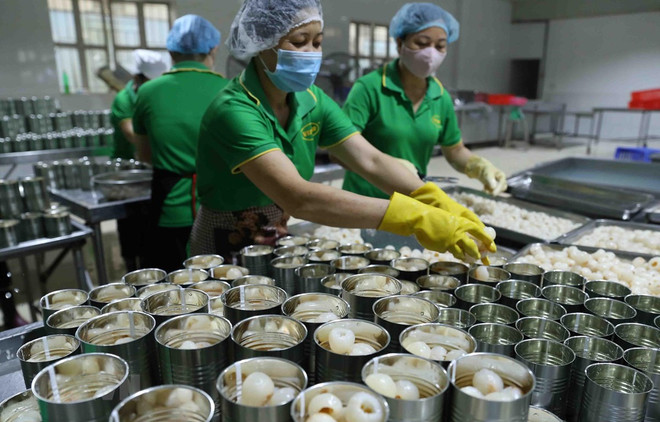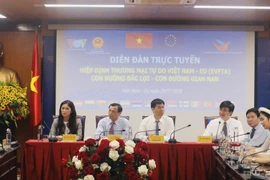Hanoi (VNA) - A training workshop called “Agricultural Productionand Trade Companies - Actions to Access the EU-Vietnam Free Trade Agreement(EVFTA)” took place in Hanoi on July 30, gathering together officials from thesector, representatives of relevant organisations, and businesses.
Opening the workshop, Le Thanh Hoa, deputy director of the AgriculturalProduct Processing and Market Development Department at the Ministry ofAgriculture and Rural Development (MARD), also introduced the Agreement on theApplication of Sanitary and Phytosanitary (SPS) Measures.
He said bilateral and multilateral FTAs to which Vietnam is a party,including the EVFTA, all have regulations on SPS measures, including details oncommitments set for Vietnamese farm produce exported to EU member countries.
Pham Dong Quang, former deputy director of MARD’s CultivationDepartment, said the challenges for Vietnamese farming exports to the EUinclude regulations on origin, safety, animal and plant quarantine, and intellectualproperty protection, as well as issues related to fair trade and sustainableproduction.
Farming in Vietnam is of small scale and lacks links, he said, whileproducers remain unfamiliar with recording product origin information. Theseresult in exports facing the risk of trade protection measures being applied bythe EU.
He recommended local companies carefully read the agreement to boost productionfor better links in value chains, increase investment in processing, and applyinternational standards in business management.
The official also suggested they apply sustainable production standardsfollowing importers’ requests, develop organic farming, and improve humanresources.
Experts have said Vietnam’s agricultural sector will be one of thebiggest winners from the EVFTA, as a reduction in tariffs will increase demandand boost exports to Europe’s large, high-spending consumer market.
According to EU figures, trade in agricultural products represents 11.75percent of the total two-way trade between Vietnam and the EU./.






























